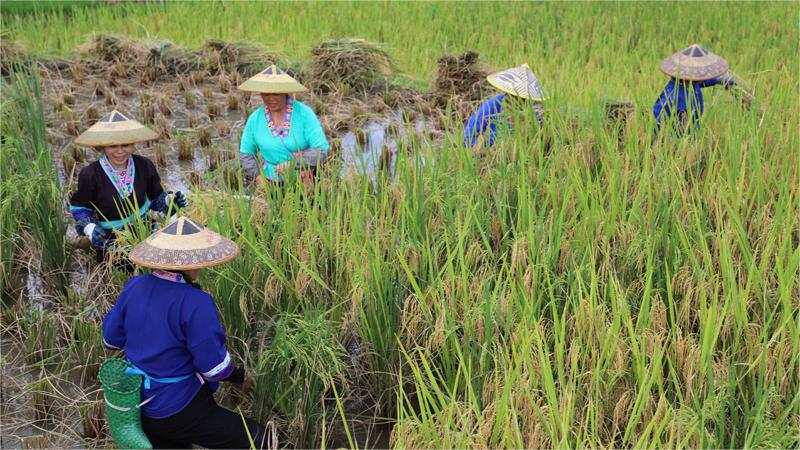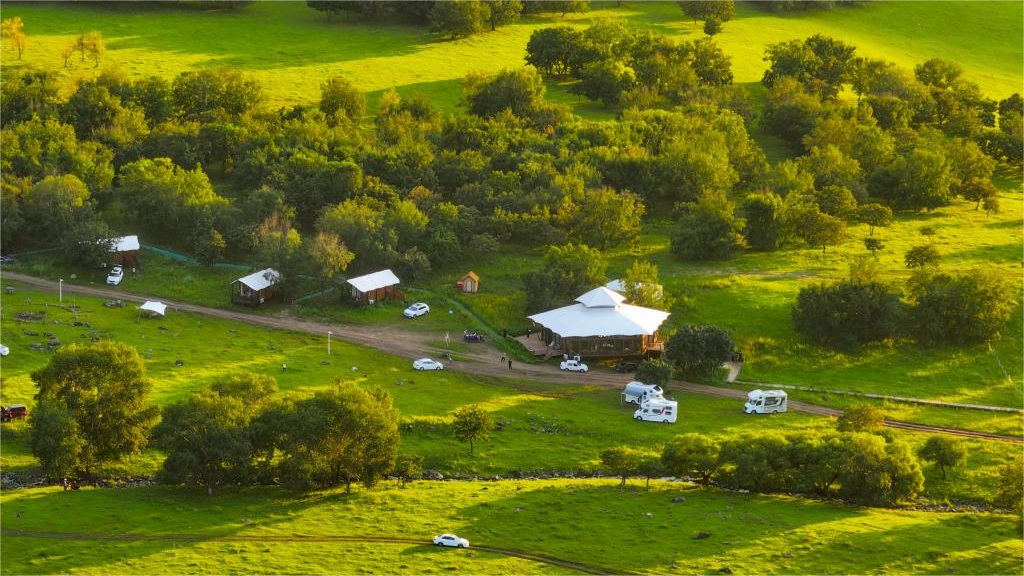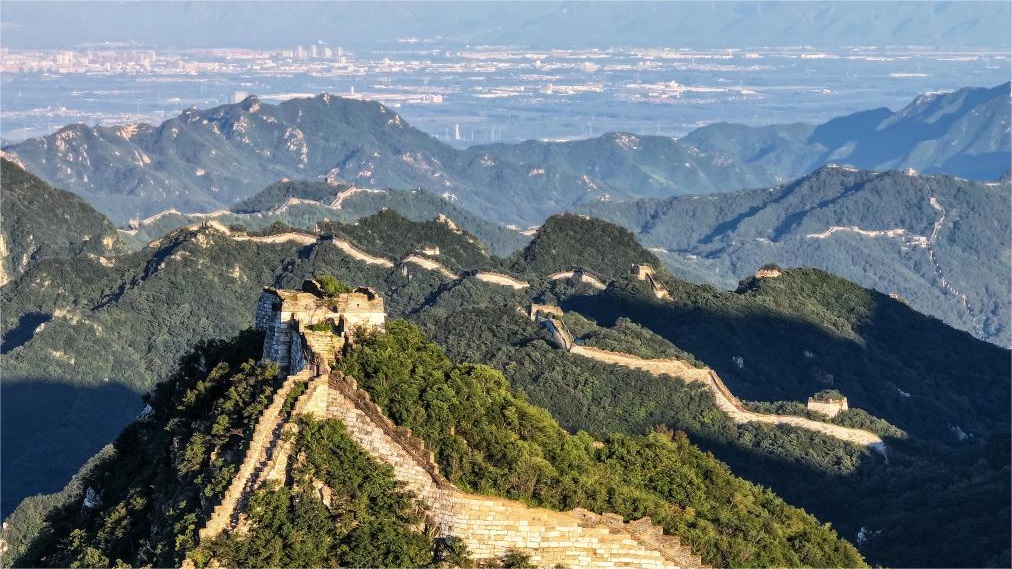Xiplomacy: China-funded rural well-drilling project greatly contributes to Africa's growth

Villagers collect water in Tenefoul Toucouleur Village, Diourbel, Senegal, March 20, 2023. (Xinhua/Han Xu)
The implementation of the well-drilling project in Zimbabwe "embodies President Xi's principles of sincerity, real results, amity, and good faith for China's Africa policy," said Zimbabwean economist Paul Musodza.
NAIROBI, Aug. 29 (Xinhua) -- From Senegal, the "gateway to West Africa," to Kenya in the East African savannah, and from Tanzania, renowned for its sisal and cloves, to Rwanda, the "land of a thousand hills," thousands of wells drilled by China are providing safe drinking water to millions and irrigating extensive farmlands, nourishing the hopeful continent.
At the Johannesburg Summit of the Forum on China-Africa Cooperation (FOCAC) in December 2015, Chinese President Xi Jinping announced 10 major plans to boost China-Africa cooperation. For years, China has implemented the rural well-drilling project in African countries, a key initiative in this collaborative effort.
These wells, dubbed "wells of happiness" by local communities, have transformed the locals' daily life, supported agricultural production, and invigorated African people in pursuit of prosperity. They stand as a vivid testament to the practical cooperation and shared development efforts between China and Africa.
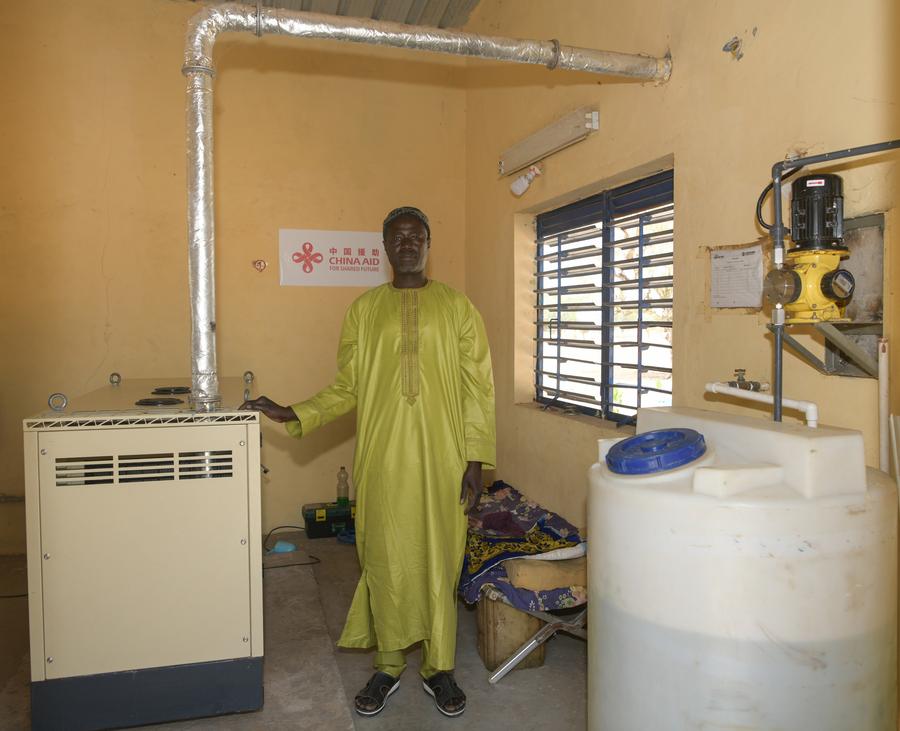
Mamadou Dieng is pictured inside the monitoring room of a well project in Tenefoul Toucouleur Village, Diourbel, Senegal, March 20, 2023. (Xinhua/Han Xu)
IMPROVING LIVING QUALITY
"Having gone through thick and thin together, China, Senegal and the vast African countries are bound by a similar historical experience, the same development tasks and a shared aspiration for a better life," Xi said in a signed article ahead of his state visit to Senegal in July 2018, highlighting the deep bond between China and Africa.
In the article, Xi specifically mentioned that the China-funded rural water supply project would "benefit one seventh of Senegal's population."
In March 2017, the rural well-drilling project was launched in Senegal, covering 12 of the country's 14 regions. Each water supply system includes wells, water towers, distribution pipelines, and supply facilities, with a maximum daily water supply capacity of 80,000 cubic meters. The project has also generated over 3,000 local jobs.
Mamadou Dieng, a 41-year-old Senegalese man, said that the water pipes now reach almost every household in the village. "It was unimaginable in the past," he said.
Located in West Africa, Senegal is adjacent to the Sahara Desert, with most of its central and eastern regions being semi-desert areas where temperatures during the dry season can reach up to 45 degrees Celsius. Like many remote areas, Dieng's village of Tenefoul Toucouleur in the Diourbel region had long faced severe water shortages.
"In the past, we had to walk 1.5 km every day to fetch water from a 25-meter-deep well in the neighboring village, sometimes queuing from dawn to midnight," Dieng said.
When the Chinese well-drilling team arrived at Tenefoul Toucouleur in 2018, Dieng joined the team as a well-driller. After it was completed, Dieng was hired as a coordinator responsible for the well's maintenance. Now he inspects the equipment in the machine room every morning and ascends the nearly 20-meter-high water tower to clean the reservoir on a regular basis.
"This 'well of happiness' has given us clean water and improved our lives," Dieng said. From being a well-driller to a well-keeper, Dieng has witnessed the tremendous changes the China-funded well has brought to the entire village.
He said he hoped that "the friendship between China and Senegal will last forever," and that China-Africa cooperation will "create a beautiful and happy future for (our) children."
Abdoulaye Ba, general secretary of the Foreign Press Association in Senegal, said: "I have personally visited those villages and seen how the China-funded wells have greatly enhanced the local water supply and truly improved the villagers' lives, making a significant contribution to Senegal's livelihood."
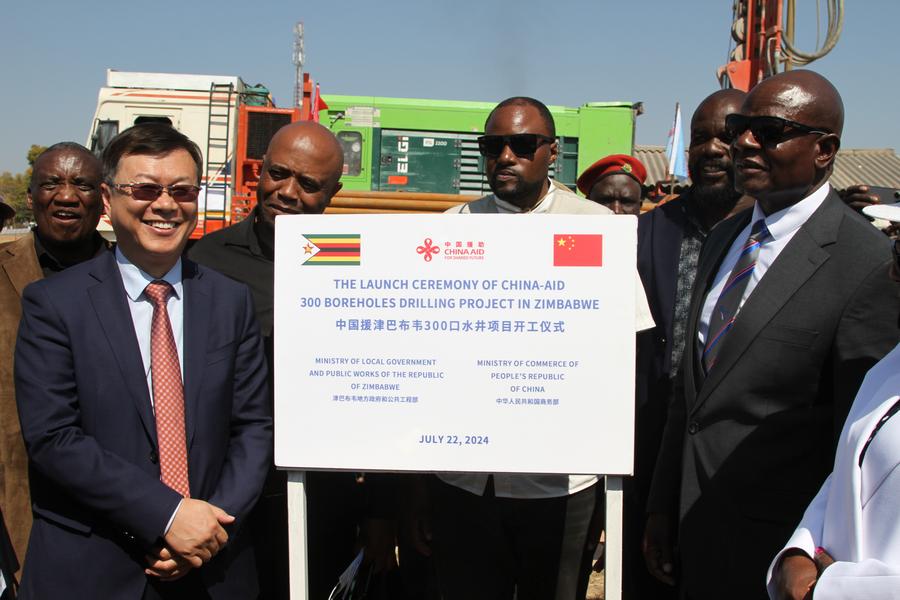
Chinese Ambassador to Zimbabwe Zhou Ding poses for photos with Zimbabwean officials at the launch ceremony of a China-aided borehole drilling project in Mahusekwa, a town in Mashonaland East Province, Zimbabwe, July 22, 2024. (Photo by Tafara Mugwara/Xinhua)
IRRIGATING LAND FOR PROSPERITY
On July 22, in Mahusekwa, a town in Zimbabwe's Mashonaland East Province, the roar of machinery was met with cheers from villagers as groundwater gushing out from below. This marked the drilling of the first well as part of China's project to build 300 wells in Zimbabwe.
"We are very happy because we now have access to clean and safe water," said Titha Chainga, a local villager who witnessed the drilling, adding that the well also provides a valuable water source for irrigating farmlands.
Affected by the El Nino phenomenon, southern African countries are once again grappling with severe drought this year. Zimbabwe, an agricultural powerhouse often referred to as the "breadbasket of Africa," is confronted with a serious challenge to its food security.
In Mashonaland East Province, a key agricultural and livestock region, the ongoing drought has left local farmers almost desperate. Vegetable farmer Tatenda Chimbwanda from Mahusekwa said that due to the lack of water, she had to walk a long distance every day to fetch water to irrigate her vegetables.
To combat the drought, China has initiated a project to drill 300 wells across the hardest-hit provinces, including Mashonaland East, Manicaland, Masvingo, and Midlands.
It is no easy task. Liu Guangcheng, the onsite management team leader of China Geo-Engineering Corporation's post-disaster well-drilling project in Zimbabwe, said that prolonged drought and reduced rainfall have severely depleted groundwater supplies, making it time-consuming to find suitable drilling locations. Meanwhile, the challenging road conditions and lack of mobile communication in remote areas are further complicating the construction efforts. However, the Chinese team has been working diligently to address the issue.
Daniel Garwe, Zimbabwe's minister of National Housing and Social Amenities, said the wells will ease the water crisis in the four hardest-hit provinces, enhancing resilience against the current El Nino-induced drought and saving livestock.
"The China-funded well drilling project is a symbol of cooperation, compassion, and unwavering support from our all-weather friend the People's Republic of China, to ensure access to safe water for all Zimbabweans," the minister said.
Chinese Ambassador to Zimbabwe Zhou Ding said that over the past decade, China has drilled more than 1,000 wells across Zimbabwe, providing drinking and irrigation water for nearly 400,000 people and creating thousands of jobs.
Zimbabwean economist Paul Musodza said that for the Zimbabwean people, China has always been a true friend that extends a helping hand when needed and remains the most reliable partner in addressing urgent needs.
The implementation of the well-drilling project in Zimbabwe "embodies President Xi's principles of sincerity, real results, amity, and good faith for China's Africa policy," he said.
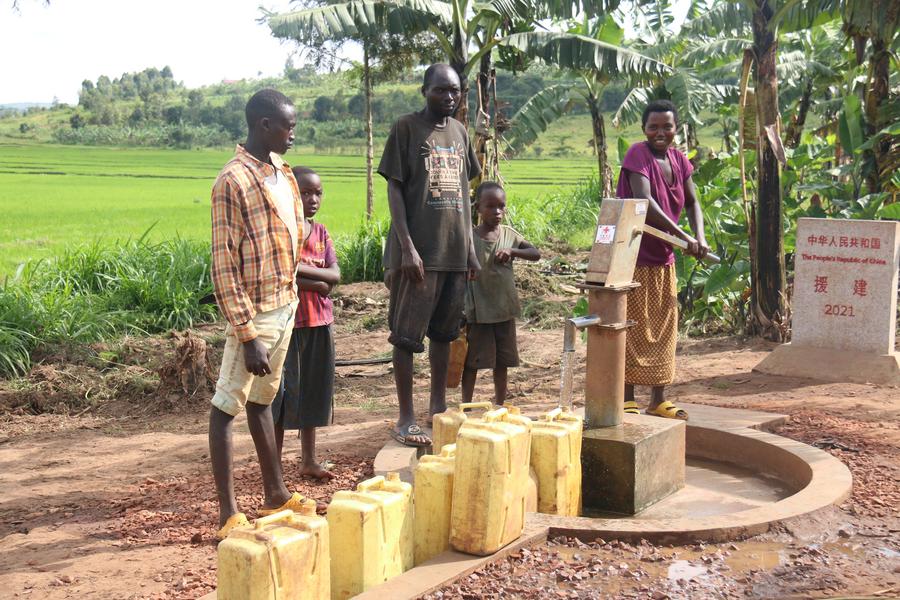
Reisdents fetch water from a borehole in Gatsibo district, Eastern Province, Rwanda, on April 11, 2022. (Photo by Huang Wanqing/Xinhua)
STRENGTHENING CHINA-AFRICA COOPERATION
The water supply projects have transformed the infrastructure and public services in African countries, making a tangible difference in the lives of local people.
In Rwanda, China's drilling of 200 wells has ensured a steady supply of clean water for drinking and agriculture. In Kenya, the Karimenu Dam water supply project, which started operation in 2022, greatly alleviates water issues for nearly one million people in the capital Nairobi and surrounding towns.
"China fully respects the actual needs and priorities of African countries. The planning and execution of the project are based on thorough communication with local governments and communities, ensuring that the project genuinely addresses real problems," said James Mdoe, deputy permanent secretary in the Ministry of Education, Science, and Technology of Tanzania.
"This pragmatic approach to cooperation not only demonstrates China's sincerity towards African nations but also reflects respect and understanding for its partners," Mdoe said.
Mdoe highlighted that China not only provides financial and technical support, but also focuses on training local professionals to ensure the sustainability of the projects. This equips African countries with the capacity for long-term, self-reliant development while helping solve current issues.
Humphrey Moshi, director of the Center for Chinese Studies at the University of Dar es Salaam in Tanzania, pointed out that China's approach, where friendship takes precedence over interests, "reflects China's genuine concern for Africa, surpassing mere economic considerations and earning widespread acclaim from African nations."
Moshi said the principles of sincerity, real results, amity, and good faith in China's Africa policy "have not only injected new vitality into China-Africa cooperation but also provided a new model for global governance. The deepening of China-Africa relations not only promotes mutual development but also makes a positive contribution to world peace and prosperity."
(Xinhua reporters Wang Zizheng in Dakar, Xu Zheng in Harare, Hua Hongli in Dar es Salaam, Jin Zheng and Yan Ran in Nairobi, and Ji Li in Kigali also contributed to the story.)
Photos
Related Stories
- Beijing prepares for the upcoming 2024 FOCAC Summit
- China firmly walks side by side with Africa on path to modernization
- China-SADC cooperation expected to flourish: African think tank
- China to join hands with int'l community to promote Africa's prosperity: FM spokesperson
- China-Africa green partnership energizes shared sustainable future
Copyright © 2024 People's Daily Online. All Rights Reserved.






